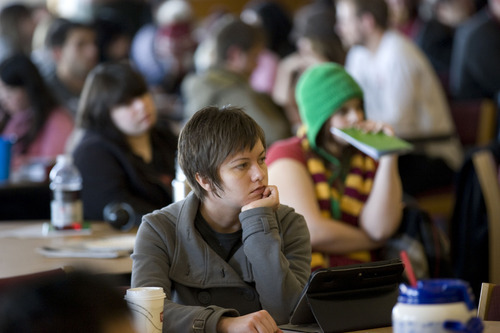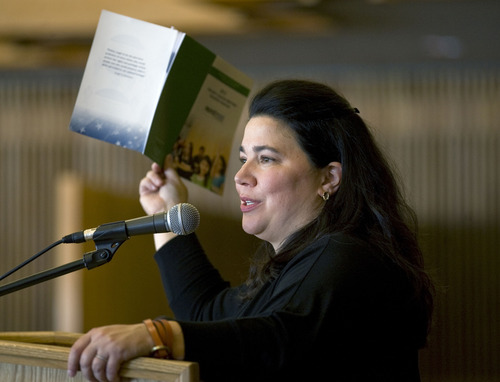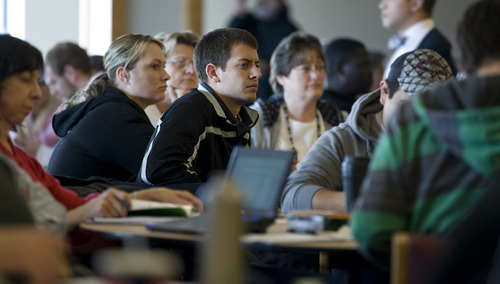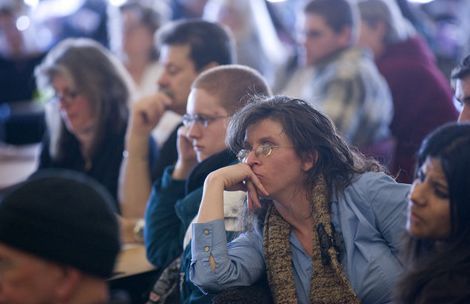This is an archived article that was published on sltrib.com in 2012, and information in the article may be outdated. It is provided only for personal research purposes and may not be reprinted.
Voting isn't enough to make a real impact in Utah politics: You need to speak up at the local caucus meetings where convention delegates are chosen every other year.
A new business-led political action committee, Education First, has been teaching hundreds of Utah students the ins and outs of caucus politics at training sessions around the state. Student leaders and education advocates hope students will attend this month's caucus gatherings to ensure education is on the minds of candidates for state and federal offices.
Better yet, students should try to get elected as delegates themselves, said University of Utah student president Neela Pack, who believes students are waking up to the political reality that what happens in the Legislature affects them in many ways.
Education First has visited numerous Utah campuses this week. The PAC's campaign manager, James Seaman, and his associates ran sessions Thursday on four of Salt Lake Community College's campuses, as well as two others at the U.
Delegates pick legislative candidates, so if students want lawmakers to value education, they need to get involved at caucus level, Seaman urged students Tuesday at the U.'s Hinckley Institute of Politics. To qualify, students need to be at least 18 on the day of the Nov. 6 general election and be registered to vote. And if they want to participate in the GOP's March 15 caucuses, they need to be registered Republicans. Democratic caucuses, set for March 13, have no party requirement.
Utah and Connecticut are the only states that require delegate support for candidates to get on the primary ballot, according to Seaman.
"Those delegates are the gatekeepers who decide who passes through that narrow passageway," said Seaman, a 2001 U. graduate who now works with the Salt Lake City public affairs firm Exoro. "The system works if people are participating. It is a way for regular people to participate in politics."
When few people participate, however, the processes is dominated by the most ideologically committed and who tend to congregate on the fringe. Historically, about one in 50 eligible residents goes to caucus meetings.
"Only 2 percent are the decision makers for the rest of us," Seaman said. He noted education is way down the list of priorities for GOP delegates — No. 11 — while it is a top priority among the general electorate. One reason for the disparity may be that young people don't caucus.
"We need more average mainstream people," he said. "Whether or not you agree with the caucus system, it's the one we need to get involved with to effect change."
The Salt Lake County party conventions are April 14, and the state conventions are April 21. To learn where your precinct's party caucus meets, go to vote.utah.gov.
Pack, a political science major, knows of few students who have attended a caucus meeting and concerned that spring break could divert some students who otherwise would come.
"Any increase is an achievement," she said. She plans to attend the Democratic caucus in her Cottonwood Heights neighborhood and hopes to get herself picked as a party delegate. Regardless of whether she is selected, her intent is to encourage policymakers to support the state's education goal of having 66 percent of the population holding a post-secondary degree or certificate.
"Our main goal is to emphasize that higher education isn't just some abstract thing, it translates into money and numbers," Pack said.









